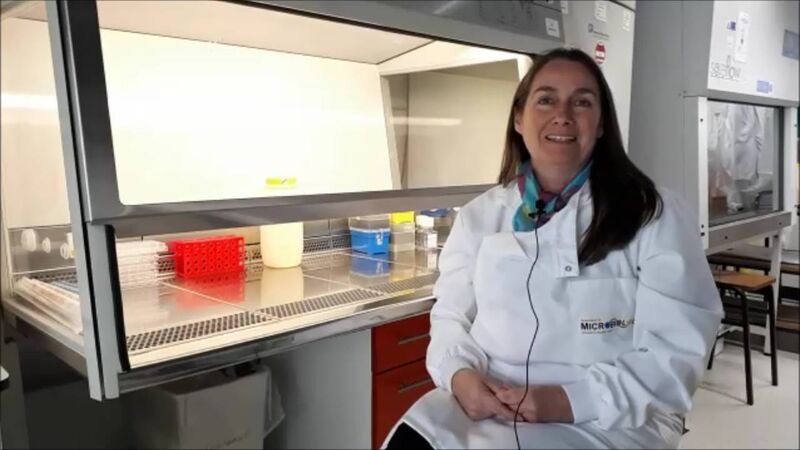Cork colleges at forefront of developing key chemical needed for Covid-19 testing

An initiative spearheaded by University College Cork (UCC) and Cork Institute of Technology (CIT) saw scientists join forces to formulate the chemical reagent needed to test for Covid-19.
The spread of Covid-19 has meant an increased need in testing for the virus which, in turn, has led to a worldwide shortage of chemical reagents required to test for the virus.
This has resulted in limited ability of labs to carry out sufficient testing.
The best way to detect and diagnose Covid-19 infection is using a test called RT-PCR. This test looks for the unique RNA nucleic acid, signature of the virus.
In a bid to allow the country’s labs to continue testing for the virus, a team of hospital, university and biopharma scientists including scientists from UCC, CIT and Cork University Hospital (CUH) came together to formulate a lysis buffer required to isolate the viral RNA.

Scientists from UCC’s School of Microbiology and APC Microbiome Ireland contacted colleagues from CIT, Teagasc, University of Limerick (UL) and local pharmaceutical company Eli Lilly, to discuss the need to make a lysis buffer to assist the hospital medical scientists who perform testing.
Virologist at UCC’s School of Microbiology Dr Martina Scallan, who teaches and examines over 500 undergraduate students every year, with responsibility for lecture modules encompassing Virology, Epidemiology and Microbial Pathogenesis, led the initiative with Dr Brigid Lucey, President of the ACSLM at CIT who lectures in Microbiology, Molecular Biology and Quality Management.
Dr Martina Scallan and Dr John MacSharry of UCC’s Schools of Medicine and Microbiology and APC Microbiome Ireland agreed to devise a formula and make up a buffer.
Between both their laboratories, they found enough reagents to make up the lysis buffer for Covid-19 testing.
Their colleagues from Teagasc, Professor Paul Cotter and Paula O’Connor, were also making up a formulation and between the two sites, they devised four formulations.
Researchers in Microbiology and APC Microbiome Ireland in UCC, Teagasc and UL made up the formulations and medical scientists in CUH’s microbiology team evaluated each of them for efficacy, using known positive and negative virus samples.

This then allowed the team in Eli Lilly to provide assistance to produce the most suitable formulation.
In a collaborative effort while working remotely, the team of scientists from academic, medical and industry backgrounds, devised a formulation and validated the lysis buffer in the timeframe of one week.
Their actions help hospital medical scientists to perform swab extractions with the reagent, helping them to keep up with the demand for Covid-19 testing.
Dr Scallan said: “This buffer will ease the burden on hospital laboratories in their heroic efforts to screen and deliver diagnostic data.” The team who formulated the lysis buffer, included Dr Lucey (CIT), Dr Scallan (UCC), Catherine Dempsey and Isabelle O’Callaghan (CUH), Dr John MacSharry (UCC), Prof Paul Cotter and Paula O’Connor (Teagasc), Dr Sarah Hudson and Dr Edel Durack (UL) as well as Dr Conor Horgan and Dr Humphrey Moynihan (Eli Lilly).
The scientists involved are also keen to share the details with as many others as possible, helping all countries to make this core component of the Covid-19 testing process. UCC has said it is “very proud” of the diverse ways in which its research community is contributing to the fight against Covid-19.

Head of the College of Science, Engineering and Food Science, Professor Sarah Culloty, said: “The rapid response of our colleagues in microbiology to the shortage of reagents, coming up with an effective solution in a matter of days by working collaboratively with a number of colleagues and institutions, exemplifies how many of our scientists in UCC are responding to this global challenge“.
The formulation of the lysis buffer has been distributed to hospital testing laboratories throughout the country, including Cork, Limerick, Sligo, Letterkenny and Waterford.







 App?
App?





